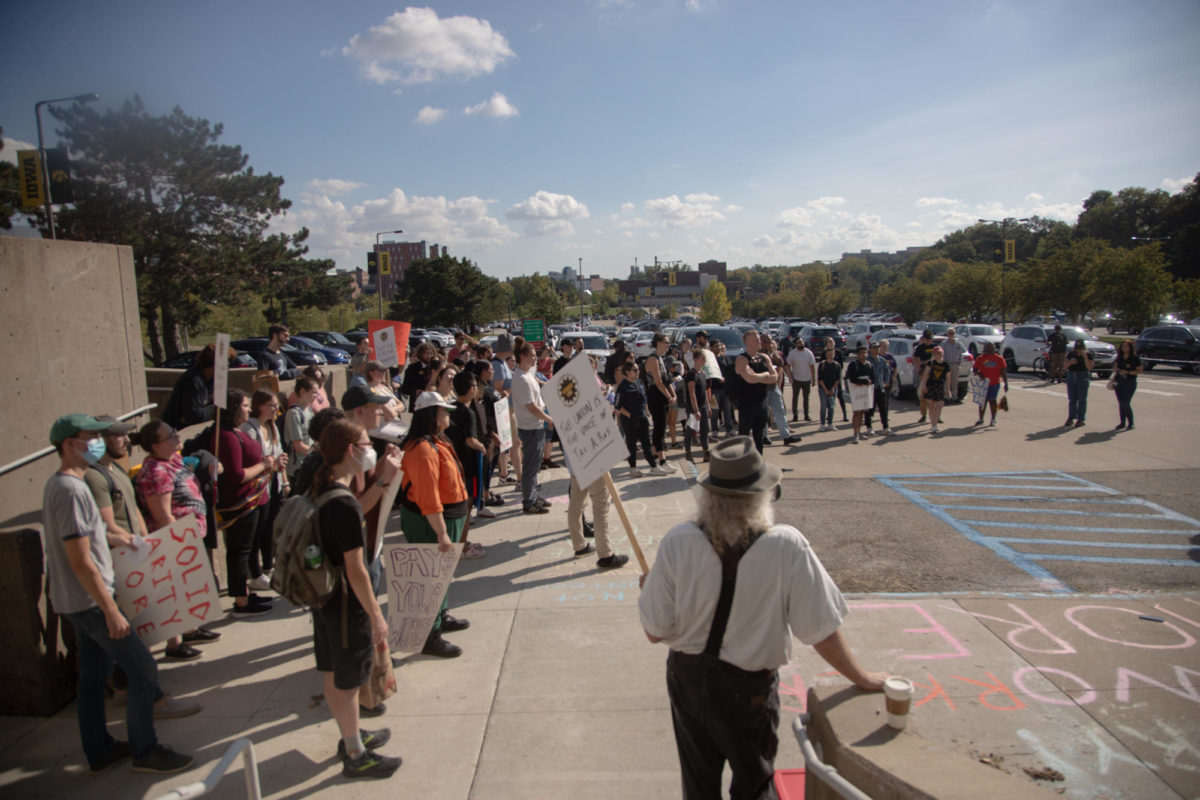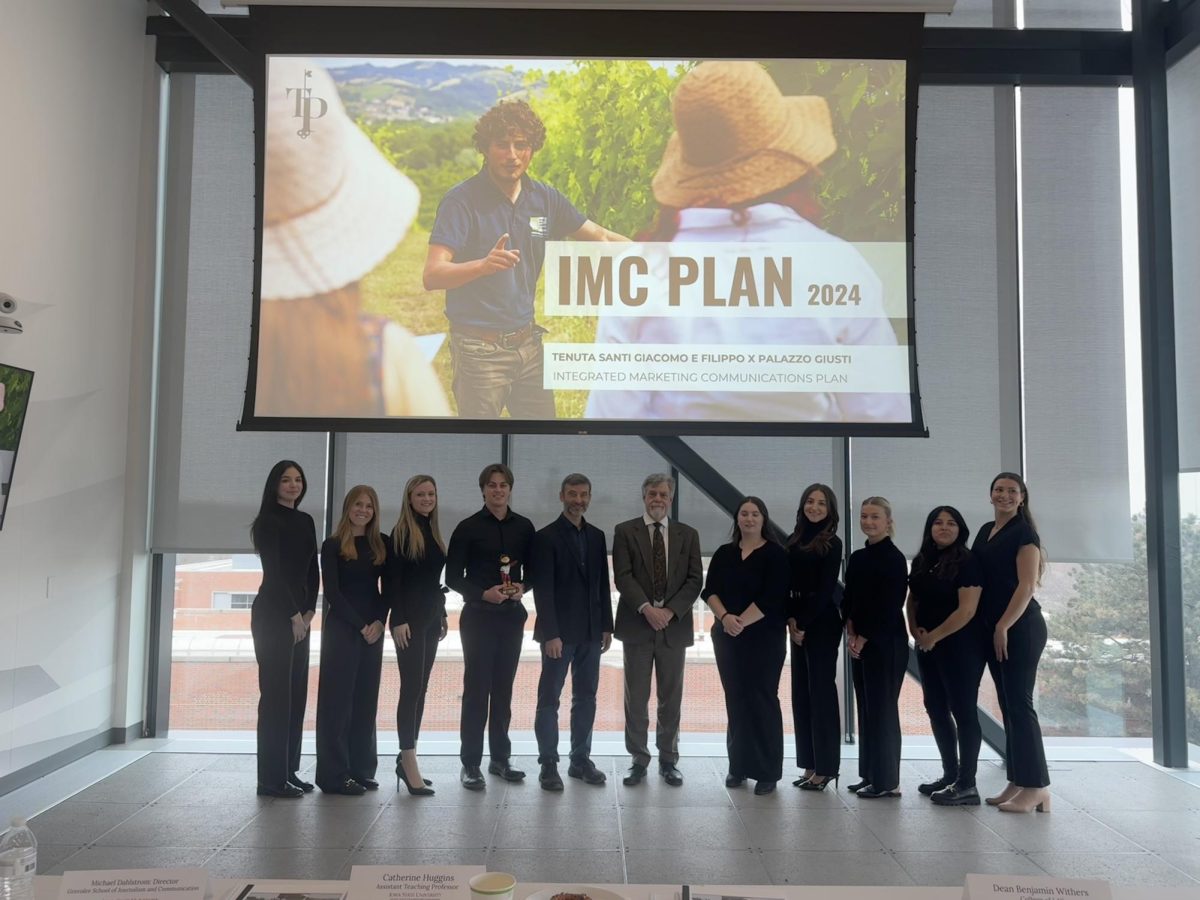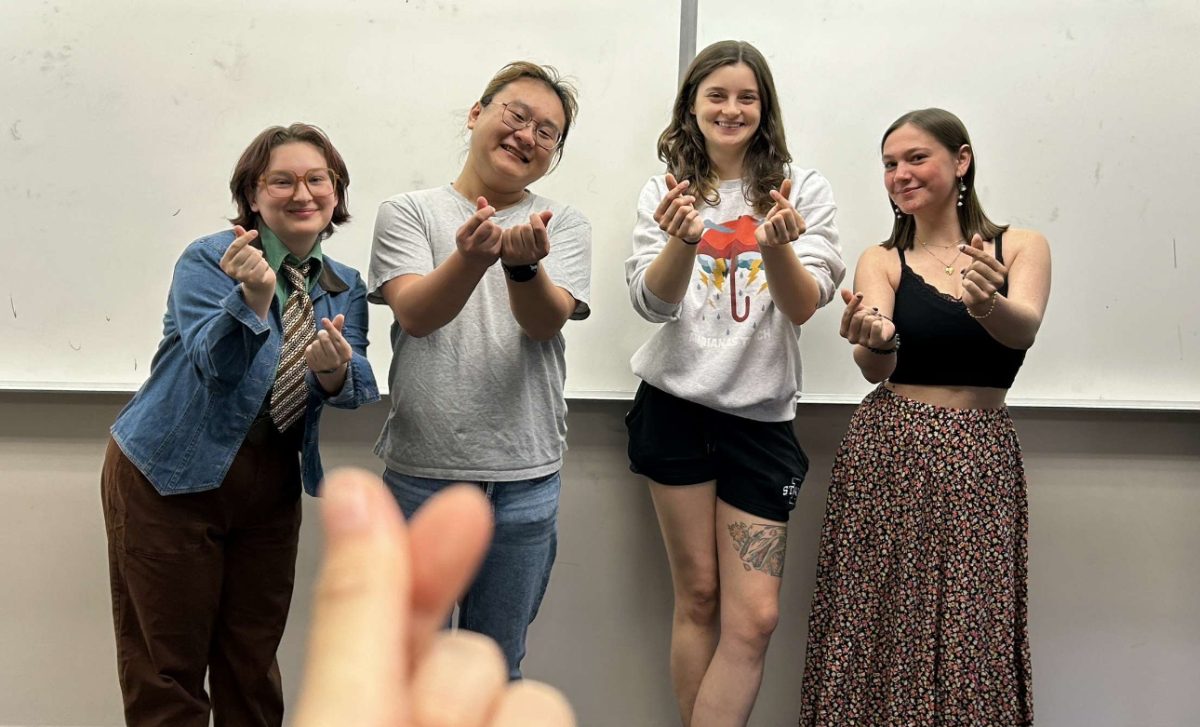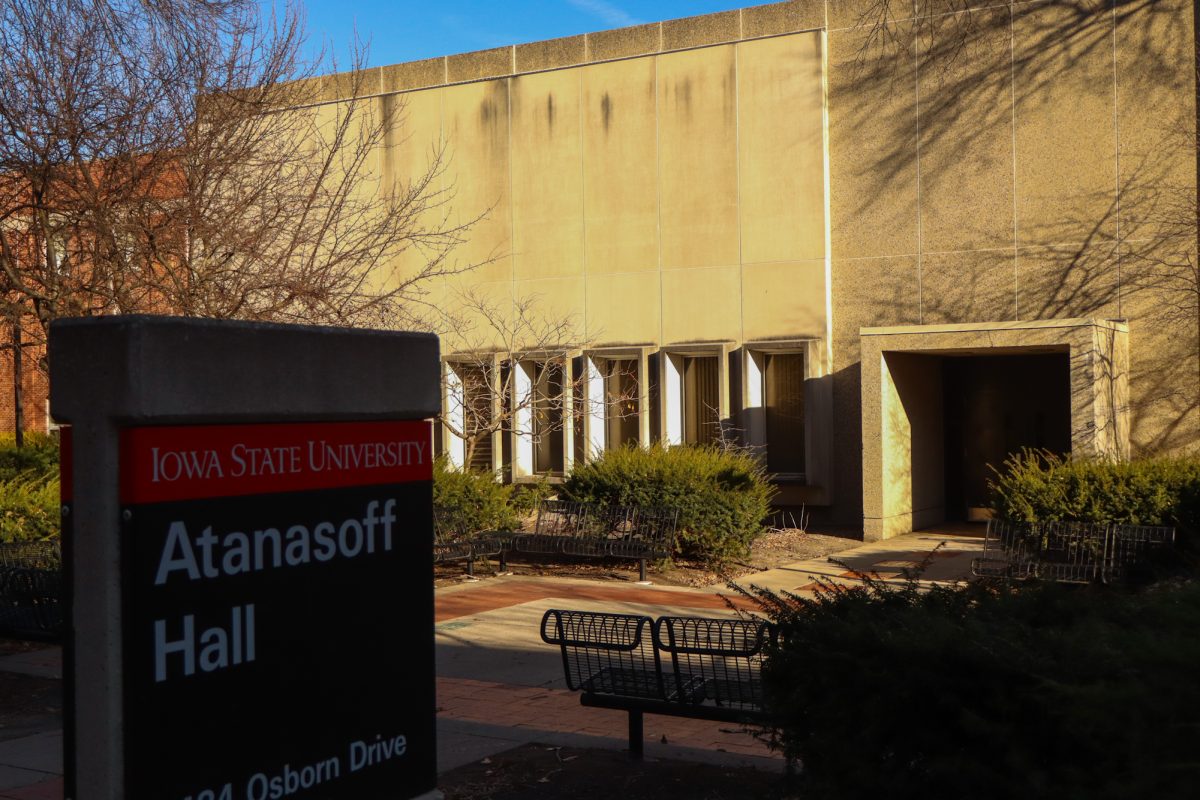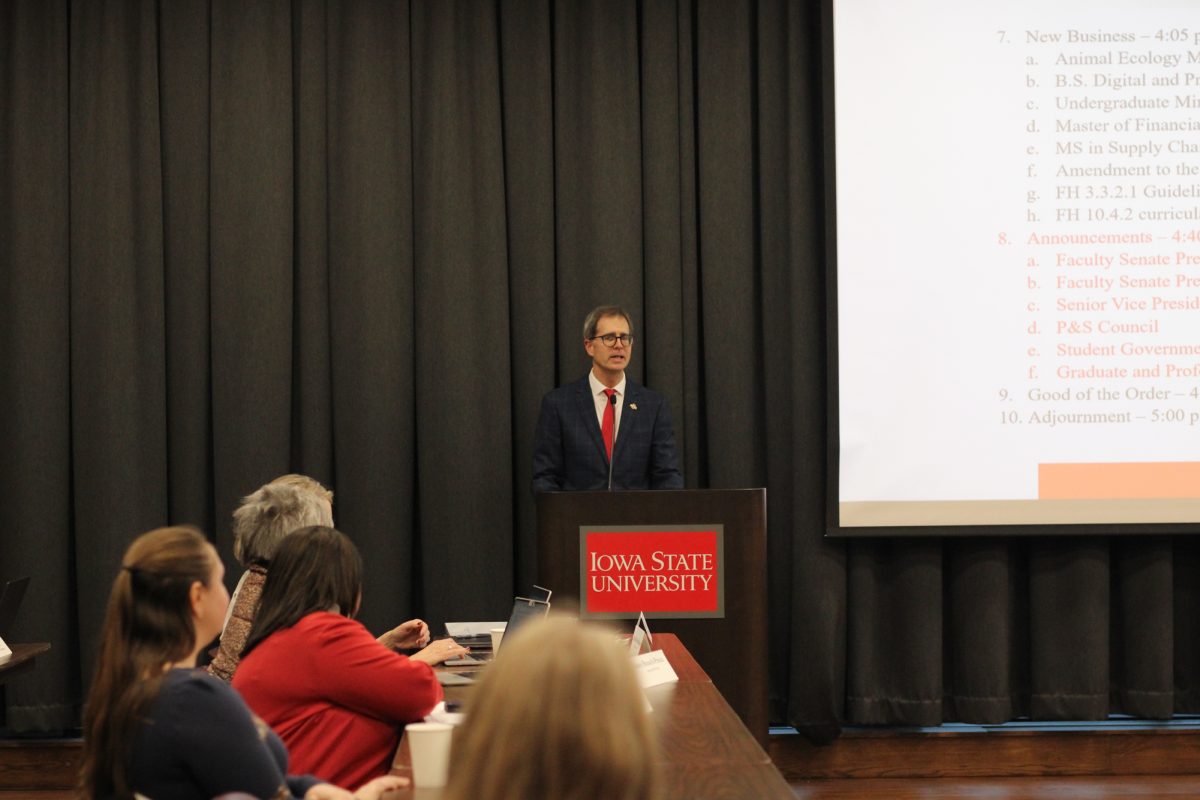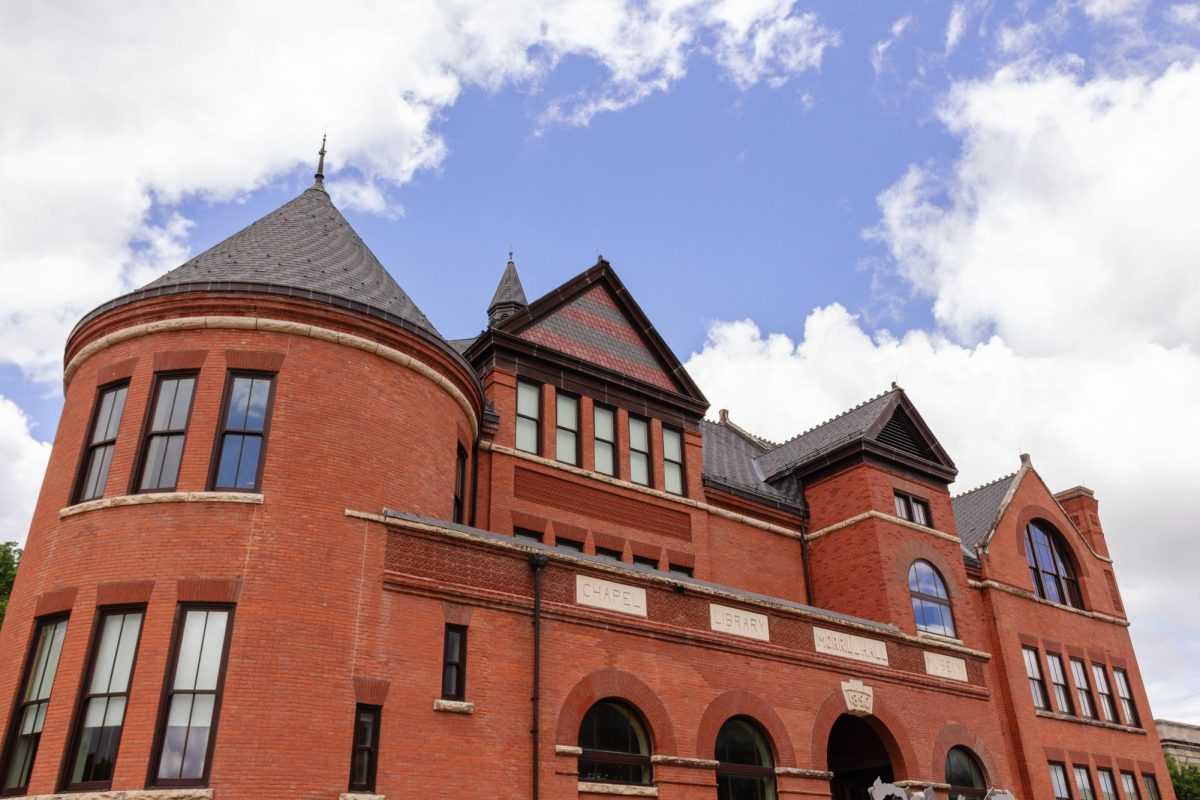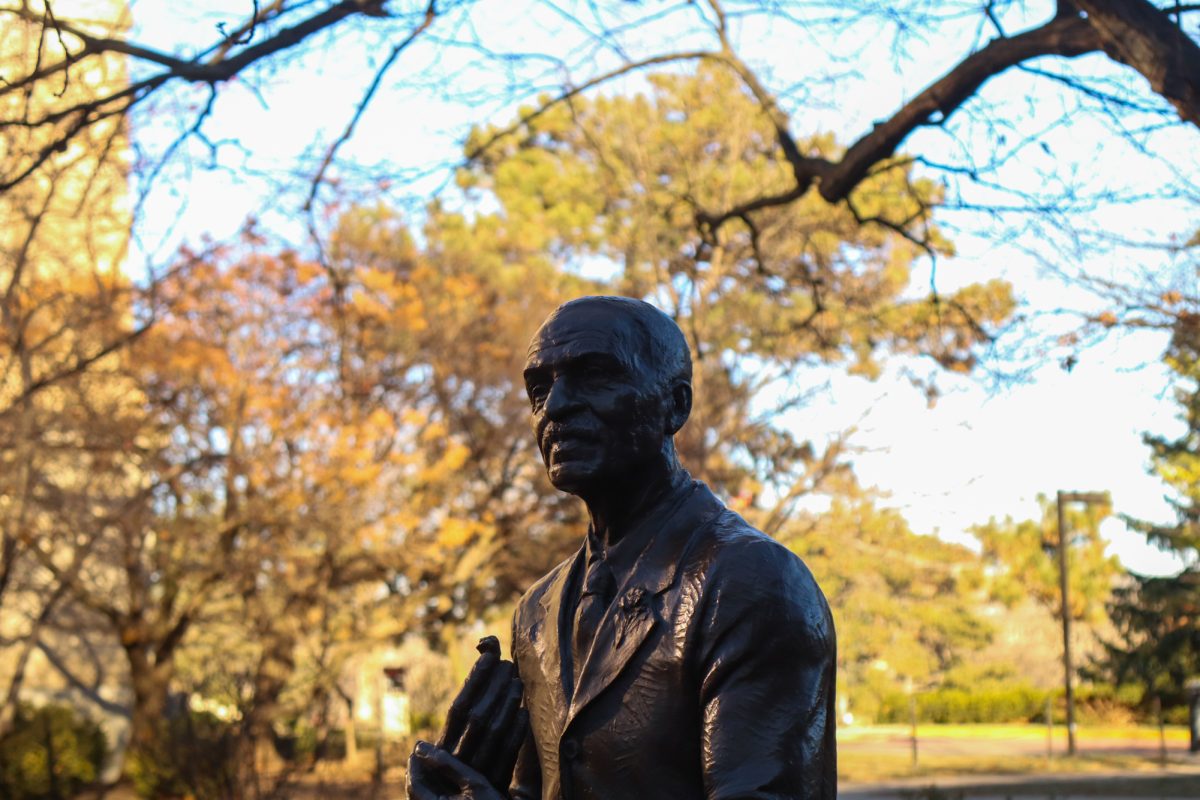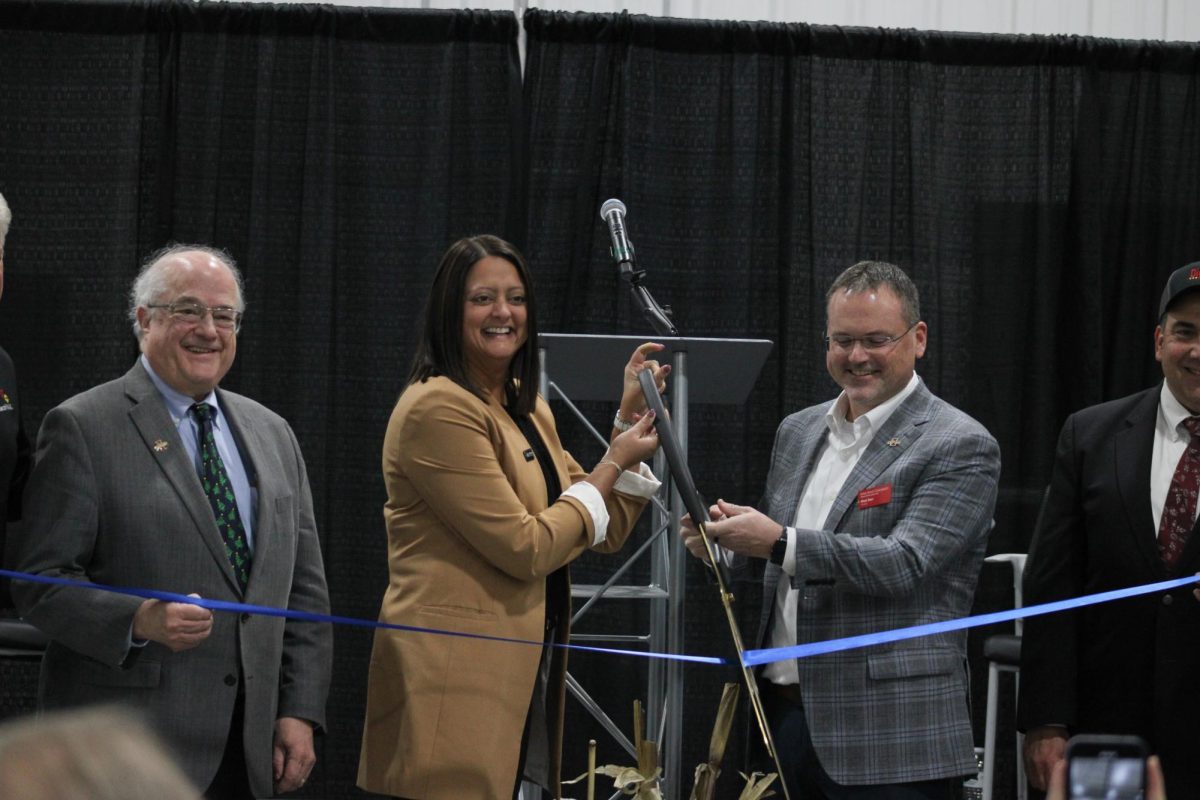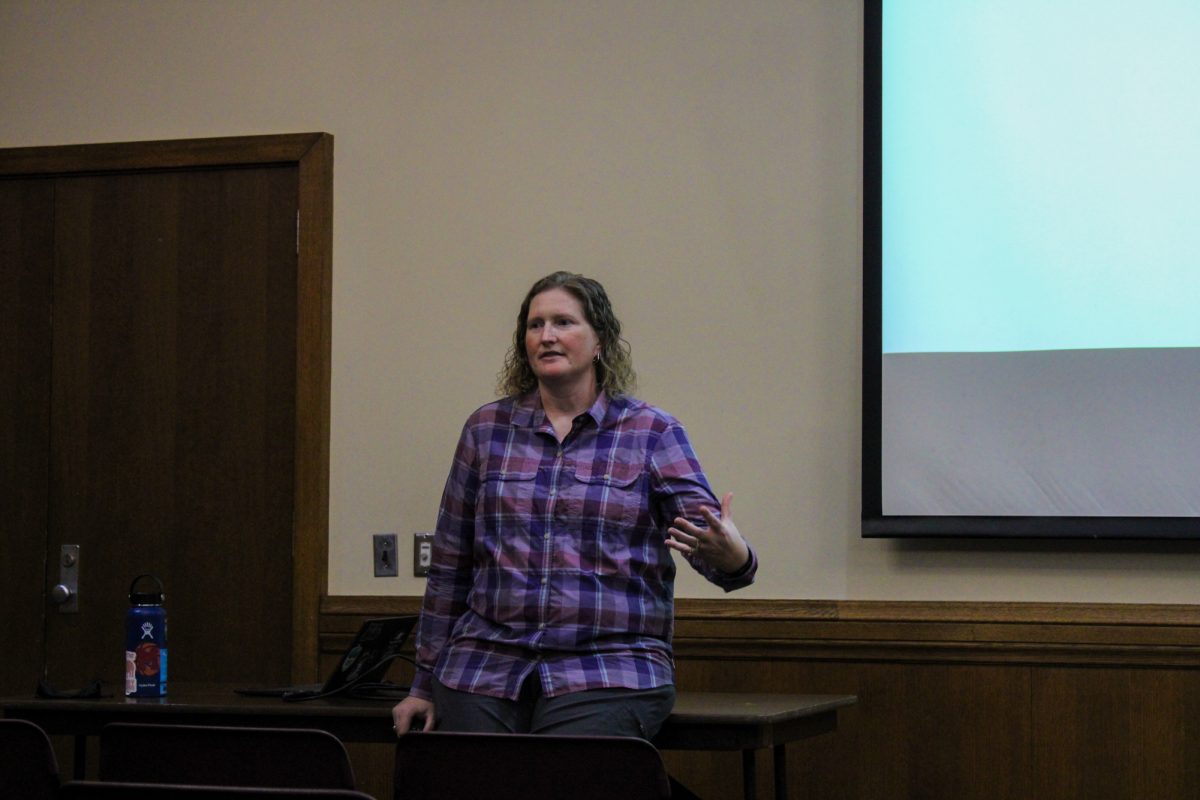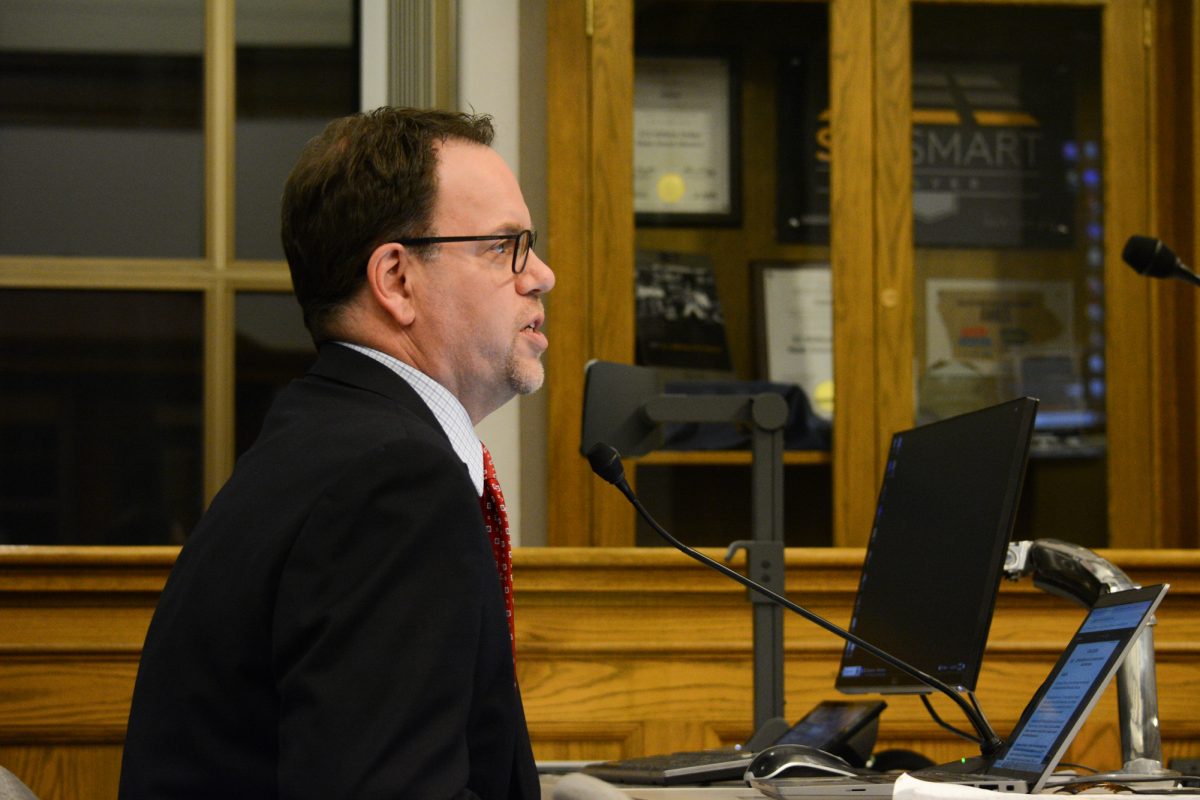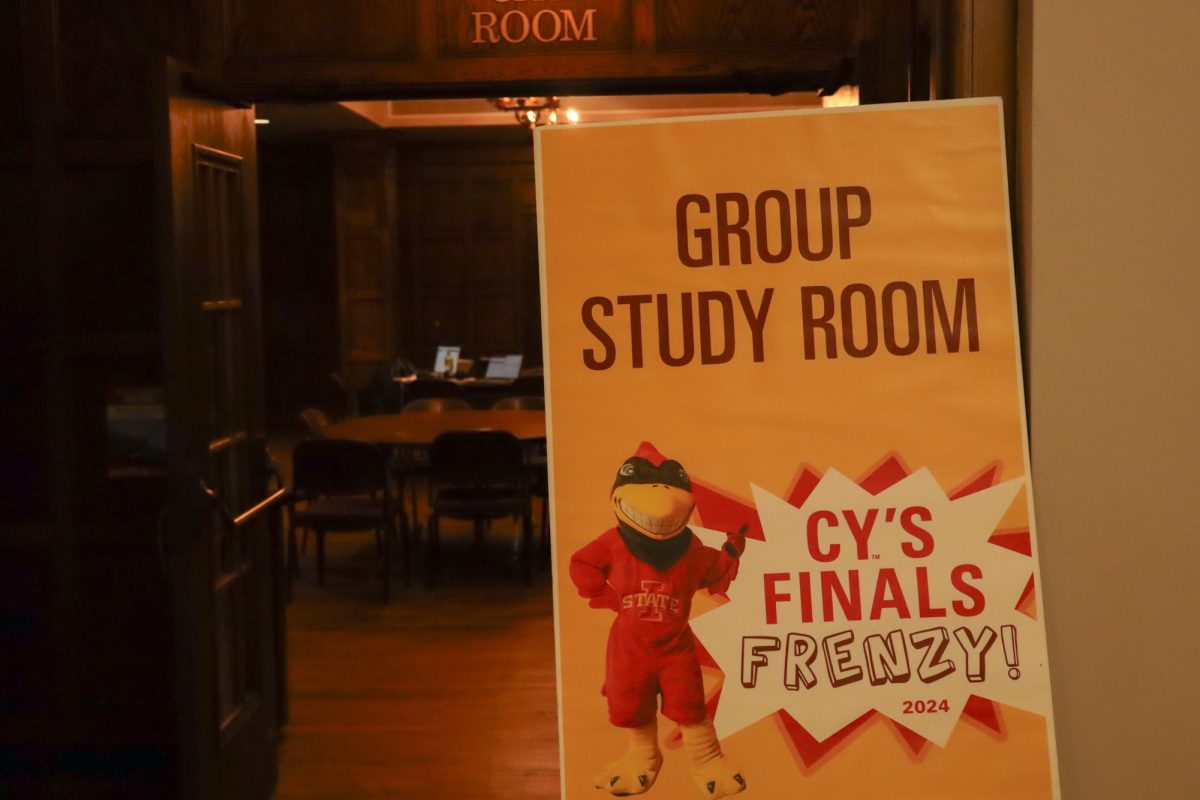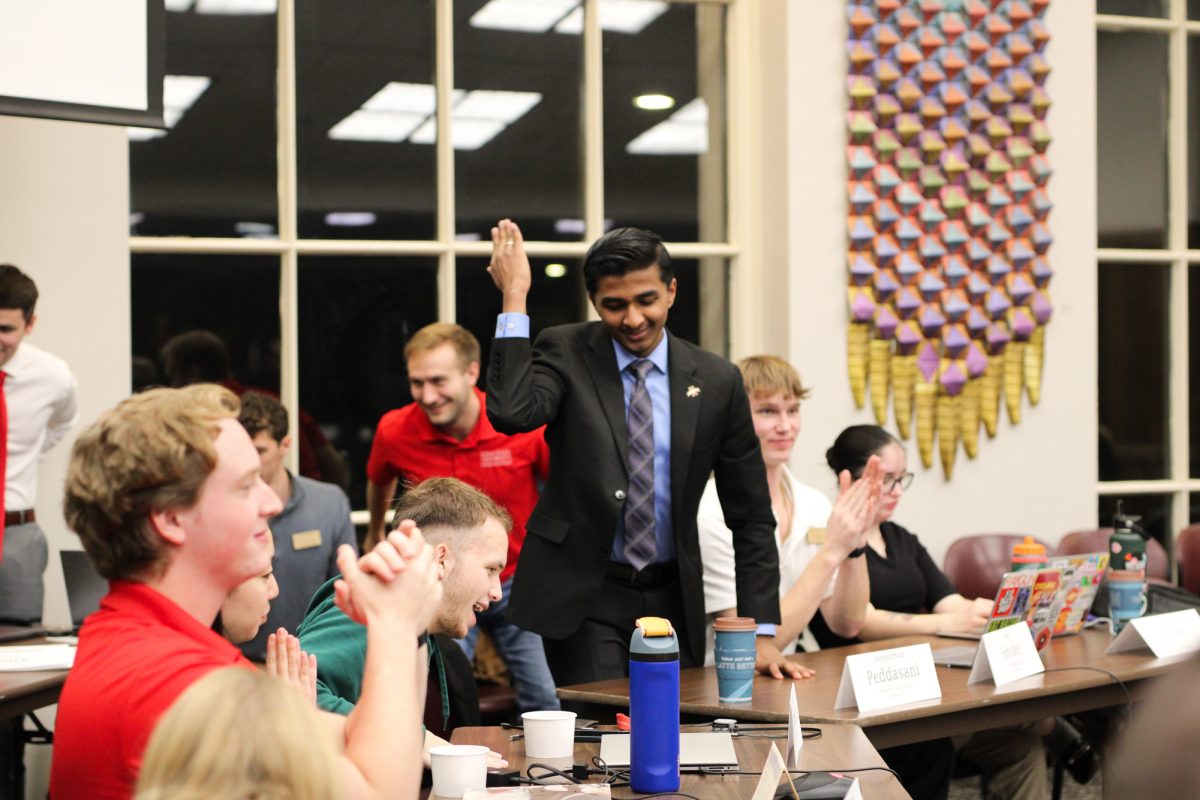A two-day Board of Regents meeting featured increased state appropriations requests, STEM workforce initiative funding requests, the termination of a major, changes to employee health and dental insurance, protests shutting down the meeting and more.
Check out what the Board of Regents did during its September meeting:
Operating appropriations request
The board approved $506.3 million in general state appropriations requests, a $13.8 million increase from last year’s funding.
Iowa State also requested special purpose dollars, including $10 million for a STEM workforce initiative. Iowa State received $2.8 million in the previous fiscal year for the same initiative.
President Wendy Wintersteen presented to the regents on the initiative, which, according to Wintersteen, would strengthen degree programs that align with Iowa’s hot-50 jobs and key stem fields. Those fields include engineering, finance, cybersecurity, healthcare management, STEM teacher preparation and more.

“The opportunities and the need are clearly there, clearly defined by many different groups, and we want to acknowledge those, see the connection to Iowa State University and build on the work we did with the first appropriation last year from the legislature,” Wintersteen said.
Also included in the $10 million request were efforts to support Iowa’s manufacturing industry, specifically small manufacturers, through biomanufacturing; onshore manufacturing jobs to Iowa; and help firms source, market and deliver products around the world.
“As I’ve been traveling around the state and visiting small businesses, it’s clear to me that we play a very key role in working with these small businesses… These small manufacturing companies around rural Iowa truly are the backbone of Iowa’s economy,” Wintersteen said of the initiative, which she said keeps Iowa State students in rural Iowa.
Additionally, the initiative intends to attract and retain rural workforce through an Extension and Outreach initiative promoting childcare, healthcare, transportation, housing and economic development.
Wintersteen also requested a $4.5 million increase to the general operation appropriation for educational excellence and impact.
“These funds will help Iowa State to remain competitive, to ensure the success of our students and allow us to continue to drive economic impact across the state,” Wintersteen said.
The request included competitive student financial aid, innovation and entrepreneurship, online programs and more.
Based on student input, the regents included $1 million “to support our universities’ efforts for expanded mental health resources at our three universities,” Regent Abby Crow said.
Elimination of speech communication
Citing the communication studies major as a “broader, more workplace-applicable course of study,” the regents officially terminated speech communication as a major.
The fewer than 10 students majoring in speech communication will be able to finish out their courses of study within three years.
Provost Jonathan Wickert said the university will not lose any staff members as a result and will save over $75,000 by eliminating 10 speech communication courses and moving the current professors to larger classes.
The Board of Regents also confirmed Dean of the College of Business David Spalding as Iowa State’s vice president for economic development and industry relations, a move announced by Wintersteen in August and a position Spalding has held since in an interim capacity since 2018.
Insurance
The board approved insurance rates for faculty, staff and students, which means coinsurance for Iowa State’s health insurance will go up 10%, and the two plans will go up $41 and $43 dollars a month.
The change also eliminates a waiver for mental health and substance abuse treatment.
Some staff members have spoke out against the change and circulated a petition that has garnered support from more than 1,000 Iowa State employees.
Facilities
The board approved Iowa State’s requests to move forward with project description and budget for four projects.
Shawn Norman, senior vice president for Operations and Finance, presented the regents with the projects, totaling $57.65 million.
A replacement for LeBaron Hall, priced at $39 million, will have $30.35 million funded privately and will eliminate $5 million in deferred maintenance costs.
Funded through dormitory bonds proceeds, the board approved a project description and budget for the building housing Seasons Marketplace, a building Norman said “requires renovation due to the lack of compliance with state of Iowa building codes, inadequate equipment, inefficient workflows and deteriorating finishes.”
The $2.45 million project will be constructed in the summer of 2024.
Norman also requested a $4.2 million project completely funded by the athletics department to the Bruce McKee indoor tennis complex, which the board approved.
The renovation will allow the facility to be utilized by the Iowa State volleyball team, and for the tennis team to move to the ISU Research Park.
Remodeling for the project will start summer 2024.
The Ames Racquet and Fitness center facility, located at the ISU Research Park, has been leased by the ISU Research Park since 2022.
Now, the ISU Research Park is looking to purchase the facility from Ames Racquet and Fitness to be leased by the university.
Additionally, the project will add a team room, locker room, training room, office space and restrooms.
A $12 million renovation to the Scheman Building, funded by ISU facilities corporation bond proceeds, will remodel the 50-year-old building.
“The existing Benton Auditorium would be renovated into a flexible event space with stage and seating areas,” according to regents documents. “The project would also provide new food and beverage amenities, along with interior wayfinding and signage improvements.”
Iowa State also received permission to proceed with a remodel of the Human Nutritional Sciences Building.
Renewals
The university reported it has $755.3 million in deferred maintenance, compared to University of Iowa’s $441.9 million in deferred maintenance and University of Northern Iowa’s $230.9 million.

Wendy Kisch, interim associate vice president facilities management, presented Iowa State’s five year capital plan to the Board of Regents on Wednesday.
Increased funding would be used for renewals in existing buildings, which would reduce deferred maintenance costs.
Kisch presented the regents with examples of three buildings to be renewed: Gilman Hall, Bessey Hall and Atanasoff Hall.
Kisch said support would maintain and improve the status of Iowa State’s STEM corridor.
“Many students select Iowa State due to our reputation in the STEM fields,” Kisch said. “We need to honor that legacy and the legacy of those who came before us through modernization of these STEM buildings.”
Gilman Hall, home to the chemistry, materials science and engineering departments and more, would cost $176 million dollars to replace, Kisch said. Renewal of the building, rather than reconstruction, would eliminate $46.4 million in deferred maintenance.
“We hope to honor [Joseph Gilman’s] reputation by equipping Gilman Hall with new technologies, a modernized classroom space, to inspire students and provide them with the appropriate tools and technology to be a pioneer in their field,” Kisch said.
To replace Bessey Hall, a building that received an addition in 2017, would cost an estimated $160 million, but proposed renewals would eliminate $24.5 million.
Bessey houses the department of ecology, as well as environmental and organismal biology.
Located on Iowa State’s Central Campus, Bessey features a conservatory for instructional labs and research, which, according to Kisch, need updated.
“Building systems in the original building require renewal to support the lab intensive needs of the students, faculty and staff,” Kisch said.
To prepare for a more computer-based future and the Degrees of the Future, Kisch presented the request for increased funding for renewals for Atanasoff Hall, which according to Kisch, would eliminate $6.3 million in deferred maintenance.
“Computer science and artificial intelligence is one of the fastest growing majors, as President Wintersteen has emphasized with the degrees of the future initiative,” Kisch said. “We need these majors to prepare students for high demand careers and help Iowa businesses and industries thrive. The building does not provide the modern collaborative space necessary for recruitment into this growing department.”


